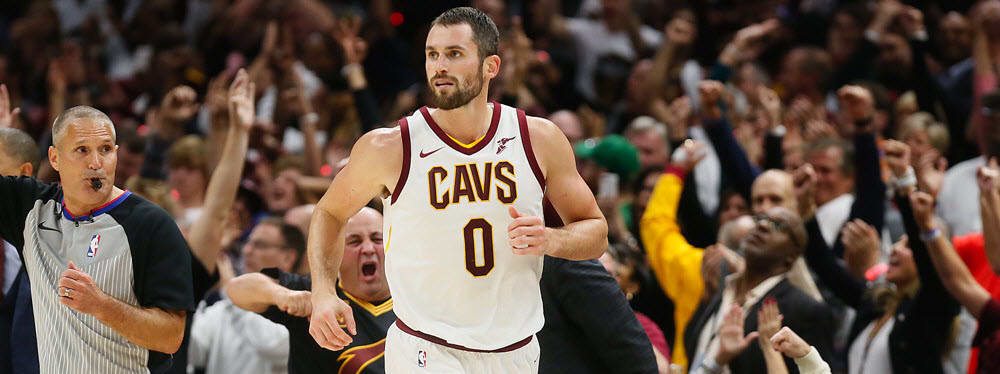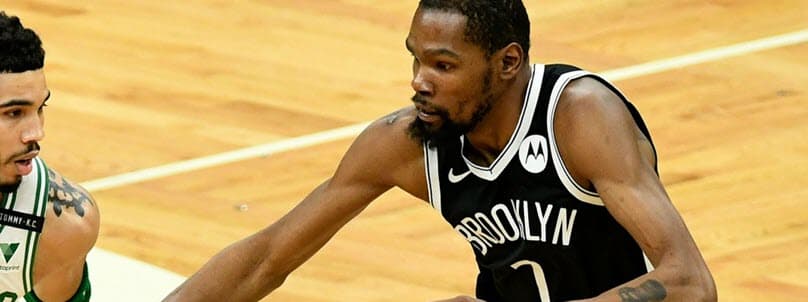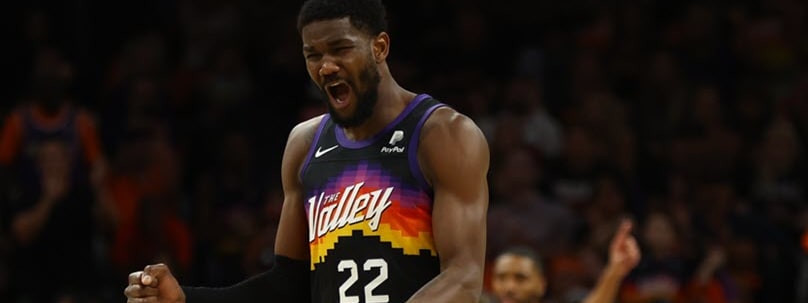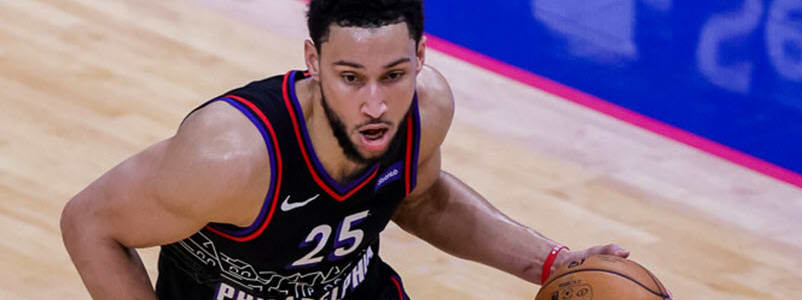Recent RotoWire Articles Featuring Rodney Hood
See More
Though Hood was limited to 21 games last season due to a torn Achilles, the 28-year-old guard was on pace for a blistering season from three-point land as he was shooting 49.3 percent from beyond the arc prior to the injury, which would have been by far his best-ever percentage. Hood's 2020-21 production will partially depend on his recovery from the major injury, though the Trail Blazers also added Robert Covington to the mix and brought back Carmelo Anthony, which could cut into Hood's playing time. Plus, Gary Trent showed capability on the wing late in the season. As a result, it could be tough for Hood to see the 29.5 minutes per game he was garnering last season. Even with his great shooting last season, he wasn't on pace to crack the top-150, so it'll be tough for him to be fantasy-relevant this season.
Hood will remain in Portland on a two-year, $16 million deal. He logged 24.4 minutes per game with the Blazers after being traded from the Cavaliers, and he provided an offensive spark off the bench at times. He averaged 9.6 points, 1.7 rebounds and 1.3 assists on serviceable shooting from the floor and from the charity stripe. Hood also made 1.2 threes per game, but he's far from a knockdown shooter. His contributions off the bench were valuable for Portland in the postseason, where he provided scoring in some opportune moments. Hood won't receive nearly the same scoring opportunities that he did while in Cleveland, as he's now surrounded by much more talented teammates in Damian Lillard and CJ McCollum, who will handle the majority of work on offense. He'll also have new addition Kent Bazemore to deal with when looking for minutes. Hood has flashed scoring upside, but he goes cold too often. His lack of consistency in that department detracts from his fantasy value, which is negligible aside from points.
Hood split last season between the Jazz and the Cavaliers, but his stint in Cleveland was mostly forgettable. The 25-year-old was a more efficient overall scorer with the Cavs than he was in Utah, but he lost confidence as the season wore on and eventually found himself out of the rotation altogether in the playoffs. In 21 regular season games with the Cavs, Hood posted averages of 10.8 points, 2.6 rebounds and 1.4 assists per game, while shooting 44.2 percent from the floor and 35.2 percent from three. During the postseason, those numbers dropped to 5.4 points, 1.8 rebounds and 1.1 assists per game across 17 contests, and Hood converted just 4-of-24 three-point attempts (16.7% 3PT). Despite how poorly he played down the stretch, Hood signed a one-year deal to return to the Cavaliers in 2018-19. The hope is that with LeBron James gone and expectations lowered significantly, Hood can reassert himself as a scorer in what will likely be a larger role. For fantasy purposes, Hood is primarily a points/three-pointers contributor, who historically hasn't provided much value in terms of rebounds, assists, or defensive stats.
Hood made just 59 appearances last season while dealing with a bone contusion and LCL sprain in his right knee. When he played, the 6-foot-8 wing posted 12.7 points, 3.4 rebounds and 1.6 assists across 27.0 minutes per game. He also shot 40.8 percent from the field and made 1.9 threes per game at a 37.1 percent clip. While those numbers are quite meager, he was far from healthy when he took the floor. That said, he performed well when given extended run, averaging 16.8 points, 4.2 rebounds and 2.3 assists on 44.9 percent shooting from the field and 36.2 percent from deep during the 27 games in which he saw at least 30 minutes. Those are likely the kinds of numbers the Jazz are hoping he can provide during the 2017-18 campaign, as the absences of both Gordon Hayward and George Hill leave an offensive vacuum on the team. That, combined with the fact that Hood is 24-years-old and heading into his fourth year in the league, put him in a prime position to have a breakout campaign. He’ll likely have to shoulder a scoring burden that he’s not used to, however, which could hinder his efficiency. All in all, the potential is there for him to be a solid top-20 Fantasy shooting guard. His general lack of name recognition could cause him to slide down draft boards as well.
Hood was able to beat out Alec Burks for the starting shooting guard job in training camp and didn’t look back, as he took an encouraging step forward in his sophomore season. The shooting guard from Duke started all 79 games in which he played, averaging 14.5 points, 3.4 rebounds, 2.7 assists, 2.0 three-pointers and 0.9 steals in 32.0 minutes per contest, numbers that were all significant improvements from his rookie season. While Hood’s strong three-point shooting was the major reason he was able to hang on to a starting role, his 6-foot-8 frame and long wingspan has made him an asset on the defensive end, too. The Jazz will look to Hood to develop some more consistency as a scorer after his point totals were often unpredictable from game to game last season, but perhaps a healthier roster will open up some cleaner looks for him in 2016-17. Rudy Gobert, Derrick Favors and Burks are all back in the fold after missing large chunks of last season with injury, giving the Jazz more weapons to take the pressure off Hood and fellow wing Gordon Hayward.
Hood is coming off a disappointing rookie season which was marred by a recurring foot injury that limited him to just 50 games. Although, he regained his fitness near the end of the season and was able to start in 21 total games, even winning Rookie of Month honors for April as he resurrected his season. Last year, his main competition for minutes was fellow rookie Joe Ingles, but now the return of Alec Burks (shoulder) complicates things for coach Quin Snyder since each of the aforementioned players could conceivably be named a starter given their ability to play at small forward in addition to shooting guard. Regardless of how it turns out, Hood is a budding sharpshooter from beyond the arc and is expected to see a solid spot in the rotation, and if he continues to show progress, the former Blue Devil could surely end up finding value in standard-sized leagues as he'll look to improve on his averages of 8.7 points, 2.3 rebounds, 1.7 assists, 0.6 steals, 0.2 blocks, and 1.2 three-pointers from last season.
Rodney Hood was drafted by the Jazz with the 23rd-overall pick in the 2014 NBA Draft. After averaging 16.1 points, 3.9 rebounds, 2.1 assists, and 2.0 three-pointers in 33 minutes per game as a sophomore for Duke last season, Hood showed his ability to contribute to an NBA rotation right away with an impressive Las Vegas Summer League. His summer league was highlighted by a 29-point performance where he was able to connect on seven three-pointers. Hood's stellar performance this summer seemed to solidify his spot as the second option at small forward behind Gordon Hayward. Hayward was a workhorse for the Jazz last season, but Hood still stands a chance to be given significant time on the court with his ability to catch fire from long range. When Hood first joined the Jazz in the offseason, he showed hesitancy shooting the ball to the point where new head coach Quin Snyder directly challenged him to be more aggressive. Rookie hiccups are to be expected, but Hood will be best if he's an aggressive scorer, since it's what Utah lacked in last season.














